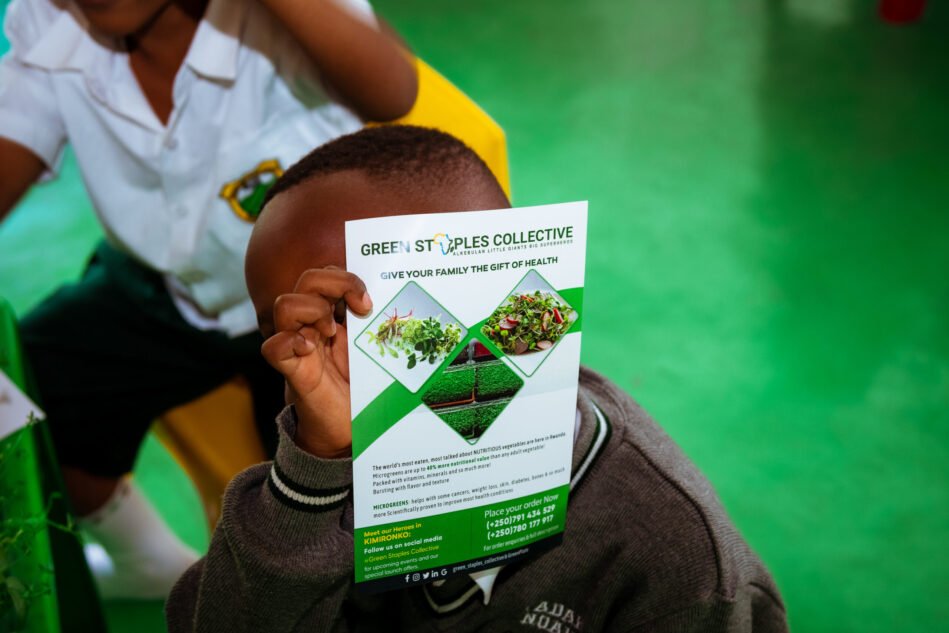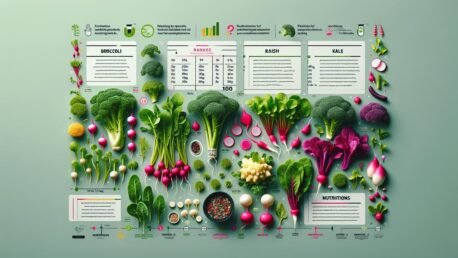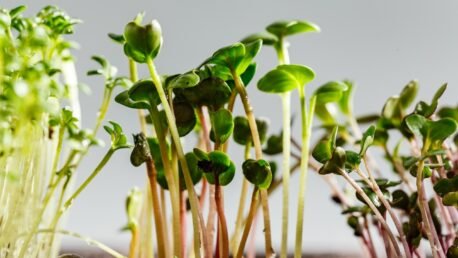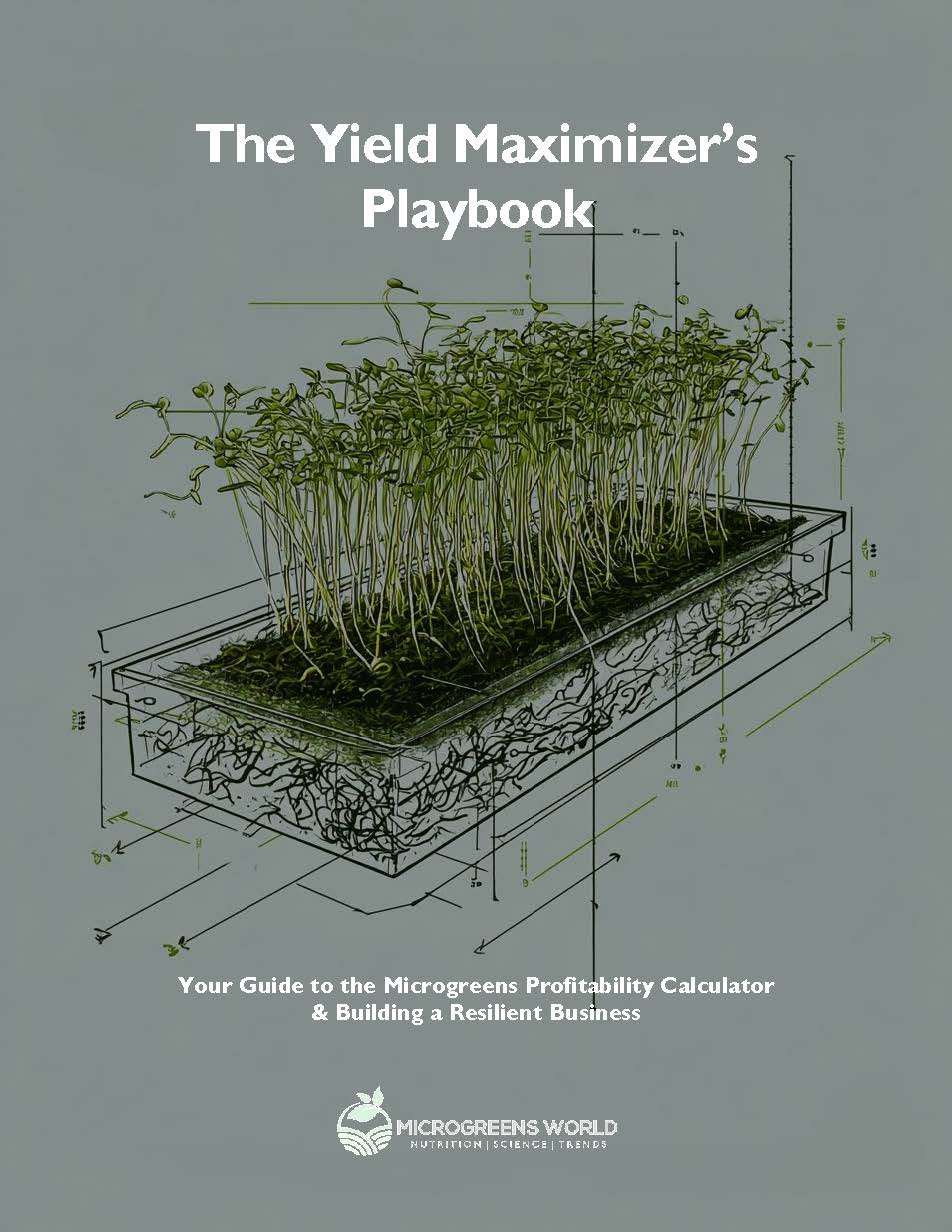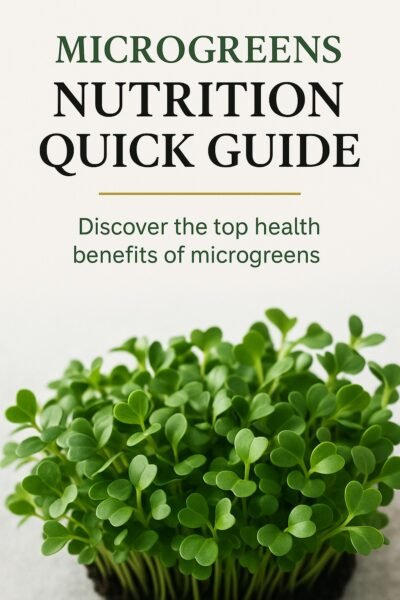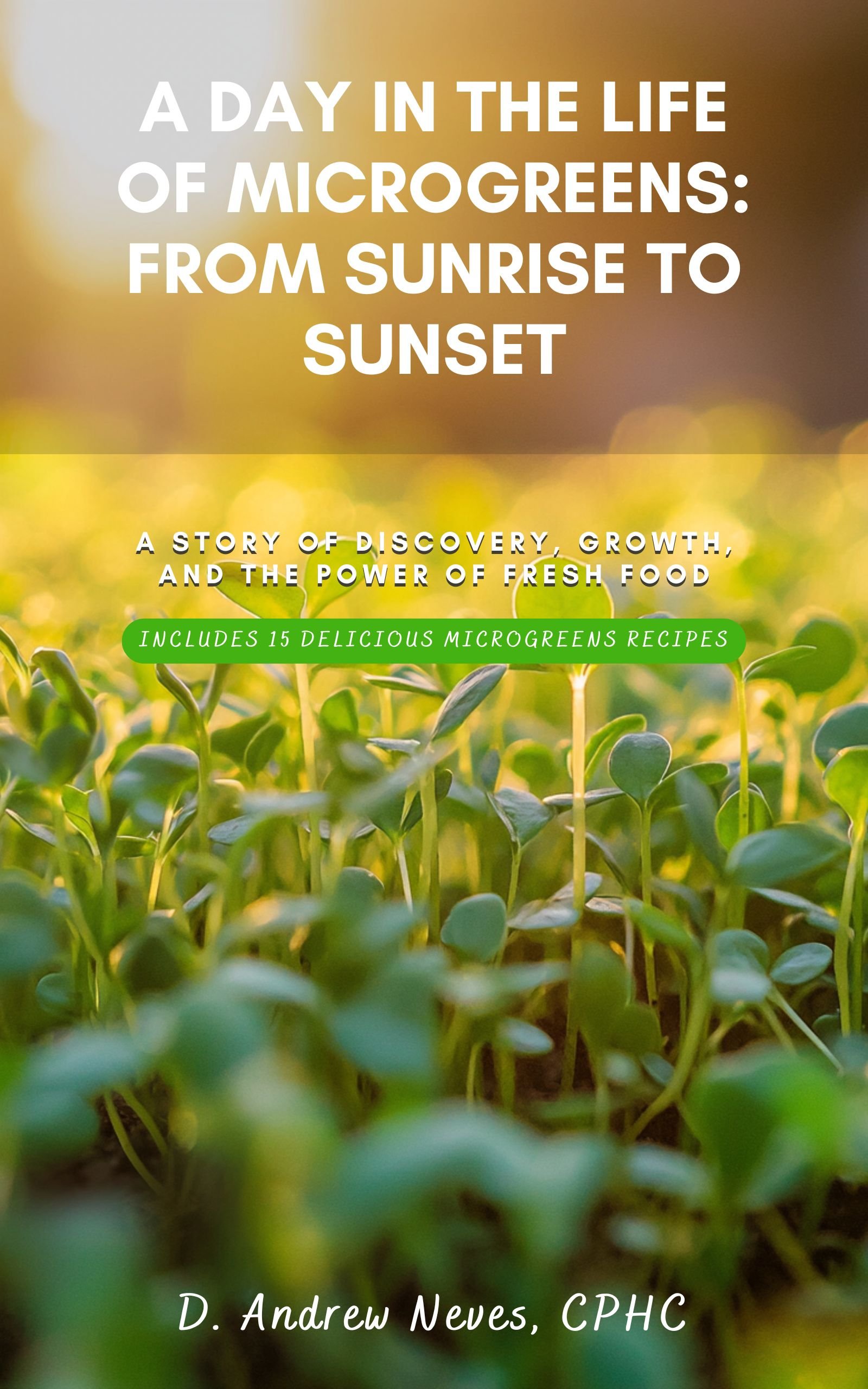by Adowa Koren, founder and CEO of Green Staples Collective Ltd, Rwanda
25 January 2024
There is a growing interest in microgreens among young entrepreneurs and urban farmers in Nairobi and Johannesburg. This trend is supported by the growing awareness of nutrition security and the need to solve youth unemployment through intelligent, innovative solutions.
But a quiet microgreens business revolution is happening in Kigali, Rwanda. Green Staples Collective (GSC) is a multi-faceted climate-smart agriculture company focusing on decentralized urban agriculture. It was initiated by CEO Koren Adowa Dejean-Lynch and registered in Rwanda in 2021.
The microgreens market in Rwanda is primarily import-driven, with a notable increase in imports, reaching 965 kg in 2022. This trend suggests a growing domestic interest in microgreens, with minimal export activities. The market reflects a rising demand for these nutritious greens, primarily catered to by imports.
Adowa had the vision to create innovative solutions to eliminate food insecurity across Africa and reduce food-related illnesses and conditions that affect millions of people on the African continent by using a variety of organic, non-modified seedlings grown to produce rich microgreens.
She pioneered her vision at the GreenHills Academy in Kigali, the first microgreens program for nursery school (kindergarten) children. Now, she is looking to expand the vision. Green Staples Collective is looking for financial and consultative support to help continue growing the business and a movement in Rwanda.
Read on and see and hear one exciting story about the global microgreens revolution, and lend your support.
- Introduction to the Microgreens Market in Africa
- Rwanda: The Microgreens Revolution
- Adowa’s Story
- Microgreens for Little Learners at GreenHills Academy
- Supplying Kigali’s Finest and Beyond
- Expanding Horizons: Proposals to Rwanda, East Africa, and the Caribbean:
- Looking Ahead at The Microgreens Trends in Rwanda
- References
GREEN STAPLES COLLECTIVE
The microgreens market in South Africa is experiencing significant growth, which is projected to increase from USD 6 million in 2021 to USD 22 million by 2031 [2]. With a CAGR of 13.1%, this growth is driven by rising demand for healthy, functional, and nutritional foods and the growing popularity of indoor vertical and greenhouse farming.
Key trends include the dominance of broccoli by type in the market and indoor vertical farming as the leading farming method. The commercial segment is the major end-user, and retail stores are the leading distribution channel. Technological advancements in farming, such as big data analytics and AI, also influence this growth. However, challenges like high initial costs for indoor farming and a lack of skilled workforce in advanced farming technologies persist.
In Kenya, Initiatives like BeGreen Africa and Engaging Kenyan Youth in Agriculture and Nutrition (EKYAN) foster green entrepreneurship and equip young people with climate-smart and regenerative farming skills. These programs empower young entrepreneurs and address critical environmental issues, thereby contributing to developing a sustainable economy in these regions [1].
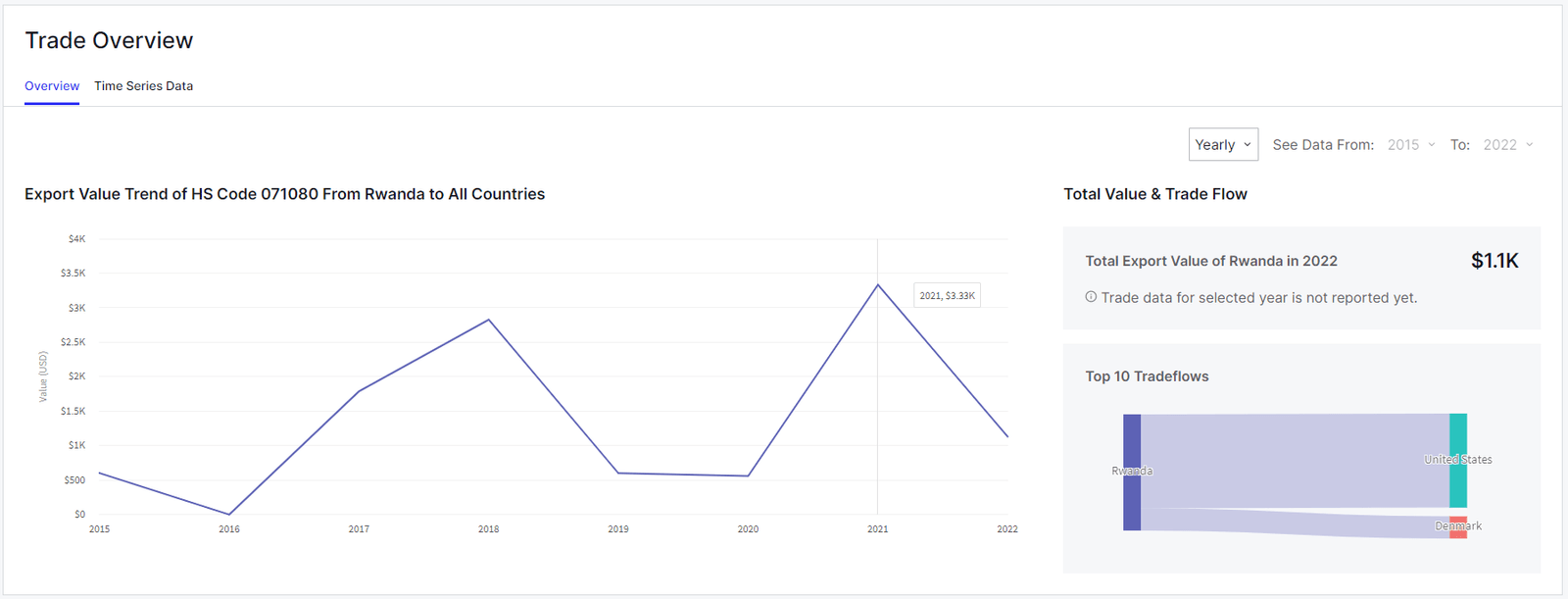
The microgreens market in Rwanda shows a modest trade scale, with a total import volume of 965 kg in 2022, marking a significant increase from previous years. Export activities remain minimal, indicating a domestic or import-driven market [3]. Detailed market data, including export and import values, can provide further insights into Rwanda’s microgreens industry trends and opportunities for local entrepreneurs and organizations interested in this sector.
Green Staples Collective: Little Giants, Big Heroes
Green Staples Collective Ltd, commonly known as GSC, is an African innovator and creator of decentralized urban gardening techniques and cutting-edge food systems that use superfood microgreens to lower food insecurity and aliment-related diseases and disorders. Microgreens are grown from a range of organic, non-modified seedlings. GSC is a Black, woman-owned business, and a registered company in Rwanda since 2021.
GSC seeks to advance sustainable and effective urban farming techniques to develop edible cities that can produce nutrient-dense food without depleting natural resources or raising issues of lack.
GSC has a range of initiatives to achieve this goal, including identifying food-insecure individuals and groups in regions with limited access to water and space and inadequate mineral concentrations in their diet to provide fresh vegetables and educate them on nutrition.
Our Microgreens Ambitions
GSC’s Urban agriculture practices aim to cultivate, process, and supply sustainable, healthy, and nutritious foods such as micro-vegetables, infused honey, fruits, and herbs. We promote microgreens because they are known to be up to 40% higher in nutrients, fiber, vitamins, and minerals than their adult counterparts. For individuals and communities, they are an excellent source of nutrition.
We focus on promoting local food production, reducing the reliance on imported food, and creating more self-sufficient communities. By incorporating urban farming practices, we aim to provide a stable food supply that is not only healthy but also environmentally sustainable.
I started the first microgreens pilot in Kigali in 2022. I relocated from London, England, with the burning desire to bring this unique crop to Africa.
Embarking on the journey of microgreen cultivation in Rwanda has been thrilling, marked by encounters with renowned chefs, royal kitchens, and even discussions with global leaders. My odyssey began during the Commonwealth Heads of Government Meeting (CHOGM), where not only did I secure the opportunity to supply microgreens for the royal event, but I also found myself in conversation with influential figures, including the then-British Prime Minister Boris Johnson.
Royal Approval at CHOGM
It was amidst the buzz of CHOGM that I received the invitation from the chefs of both Marriott and the late Queen of England. The royal event initially thought to be separate, was seamlessly integrated into the CHOGM proceedings, elevating the significance of my microgreens to a global platform. The request for six variations of these nutrient-packed wonders for the royal guests was an honor that fueled my commitment to sustainable farming practices in Rwanda.
Conversations with Boris Johnson:
While at CHOGM, the unexpected opportunity to discuss my microgreen concept with then-Prime Minister Boris Johnson unfolded. Our conversation delved into the potential impact of microgreens on local agriculture, nutrition, and sustainability. The exchange was not only a validation of the importance of my work but also a recognition of Rwanda’s efforts in promoting innovative and eco-friendly farming practices.
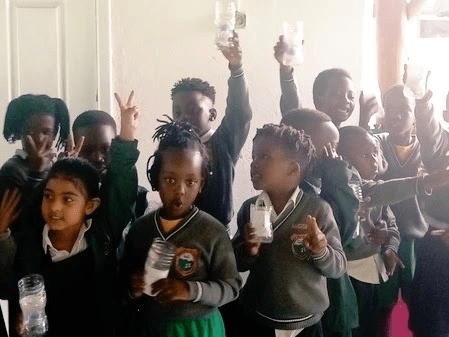
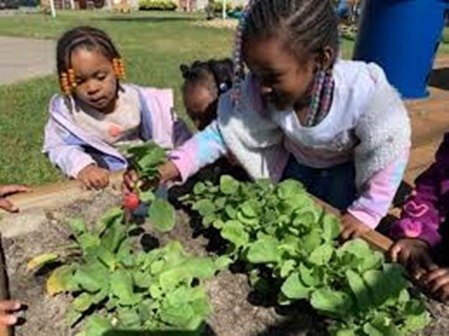
Microgreens for Little Learners at GreenHills Academy
Amid these remarkable experiences, an advantageous chapter of my microgreens journey unfolded at GreenHills Academy in Kigali. Here, I pioneered the first microgreens program for nursery school (kindergarten) children, engaging 110 little learners in the wonders of sustainable microgreens farming. Witnessing the enthusiasm and curiosity of these young minds as they participated in the program was a heartwarming experience. This initiative aimed to expose children to the marvels of sustainable farming and instill healthy eating habits from a young age.
Supplying Kigali’s Finest and Beyond
Following the success of the royal event, CHOGM, and the microgreens program at GreenHills Academy, my journey extended to the hospitality sector in Kigali. Becoming the first supplier for six leading hotels validated the quality of my produce. It spurred interest in the benefits of incorporating locally grown, sustainable microgreens into the culinary scene. The demand from the hospitality industry reinforced the notion that a focus on freshness and sustainability was becoming a priority.
Expanding Horizons: Proposals to Rwanda, East Africa, and the Caribbean
Buoyed by the success and recognition garnered at home, I am now actively creating business models and writing proposals to promote microgreen programs on a broader scale. The vision is to extend the benefits of sustainable farming, nutrition, and environmental awareness to Rwanda, East Africa, and the Caribbean. The goal is to encourage governments and communities to consider Reflecting on the journey from supplying microgreens for royalty to engaging in conversations with global leaders and pioneering programs for little learners.
I am grateful for the unfolding opportunities. The experience has not only solidified the importance of microgreens in promoting sustainable agriculture and nutrition but has also positioned Rwanda as a beacon of innovation in the global farming landscape.
Looking ahead, I am excited about the potential for growth and impact. As I continue cultivating excellence in microgreens, education, and sustainability in Rwanda, I actively seek visionary investors, partners, and collaborators to join this exciting journey. Together, we can sow the seeds of a greener future, nourishing communities and inspiring the leaders of tomorrow worldwide. If you share the vision of promoting sustainable practices and making a lasting difference, please don’t hesitate to reach out.
For More Information and to Support Green Staples:
Your support can help grow not just a business but a movement.
For investment inquiries and further discussions, please get in touch with me, Adowa Koren, at:
Email: Greenstaples.co@gmail.com
WhatsApp: +250 780 177 917
Follow us on Green Staples Collective on Instagram and GreenPlate.
References
- UNICEF Kenya. “New Green Entrepreneur and Agriculture Initiatives Launched to Augment Livelihoods for Youth.” UNICEF, 12 August 2023, www.unicef.org/kenya/press-releases/new-green-entrepreneur-and-agriculture-initiatives-launched-augment-livelihoods.
- Allied Market Research. “South Africa Microgreens Market.” Allied Market Research, 2021, www.alliedmarketresearch.com/south-africa-microgreens-market-A13456.
- “Microgreen Market Overview 2023.” Tridge, 2023, www.tridge.com/intelligences/microgreen/RW.
